- Home
- William Shakespeare
Othello Page 9
Othello Read online
Page 9
Be not ensheltered and embayed, they are drowned;
It is impossible to bear it out.
Enter a [third] Gentleman.
THIRD [GENTLEMAN]
News, lads! Our wars are done.
The desperate tempest hath so banged the Turks
That their designment halts. A noble ship of Venice
Hath seen a grievous wrack and sufferance
On most part of their fleet.
MONTANO
How? Is this true?
THIRD [GENTLEMAN] The ship is here put in, 8 ribs of oak curved frame of a ship's hull 9 hold the mortise hold their joints together 10 segregation scattering (i.e., defeat) 12 chidden billow i.e., driven wave (past tense of "chide," to scold or compel by scolding) 13 mane (figuratively the foam of the surge is like a monster's mane; with a pun on "main," sea) 14 burning Bear constellation Ursa Minor 15 Guards . . . pole two attendant stars, known as the "guardians" of the polestar 16 molestation turmoil 17 enchafed furious, enraged 22 designment halts naval plan limps 23 wrack and sufferance devastation and injury
A Veronesa. Michael Cassio,
Lieutenant to the warlike Moor, Othello,
Is come on shore; the Moor himself at sea,
And is in full commission here for Cyprus.
MONTANO
I am glad on't. 'Tis a worthy governor.
THIRD [GENTLEMAN]
But this same Cassio, though he speak of comfort
Touching the Turkish loss, yet he looks sadly
And prays the Moor be safe, for they were parted
With foul and violent tempest.
MONTANO Pray heavens he be;
For I have served him, and the man commands
Like a full soldier. Let's to the seaside - ho! -
As well to see the vessel that's come in
As to throw out our eyes for brave Othello,
Even till we make the main and th' aerial blue
An indistinct regard.
GENTLEMAN Come, let's do so;
For every minute is expectancy
Of more arrivance.
Enter Cassio.
CASSIO
Thanks, you the valiant of the warlike isle,
That so approve the Moor! O, let the heavens
Give him defense against the elements,
For I have lost him on a dangerous sea!
MONTANO
Is he well shipped?
CASSIO
His bark is stoutly timbered, and his pilot
Of very expert and approved allowance; 26 Veronesa (probably a ship supplied by the city of Verona, but perhaps a particular kind of vessel) 31 of comfort i.e., with relief 39-40 Even till . . . regard until we can't distinguish the blues of sea and sky 44 approve admire, support
Therefore my hopes, not surfeited to death,
Stand in bold cure.
[VOICES] (Within) A sail, a sail, a sail!
CASSIO
What noise?
GENTLEMAN
The town is empty; on the brow o' th' sea
Stand ranks of people, and they cry "A sail!"
CASSIO
My hopes do shape him for the governor.
[A shot.]
GENTLEMAN
They do discharge their shot of courtesy:
Our friends at least.
CASSIO I pray you, sir, go forth
And give us truth who 'tis that is arrived.
GENTLEMAN
I shall. Exit.
MONTANO
But, good lieutenant, is your general wived?
CASSIO
Most fortunately. He hath achieved a maid
That paragons description and wild fame;
One that excels the quirks of blazoning pens,
And in th' essential vesture of creation
Does tire the ingener.
Enter Gentleman.
How now? Who has put in?
GENTLEMAN
'Tis one Iago, ancient to the general.
50-51 my hopes . . . bold cure i.e., since I haven't allowed myself to hope too much (hopes, not surfeited to death), the chances of my getting my wish are good (Stand in bold cure) 55 My . . . governor i.e., "I hope this is Othello's ship" 62 paragons . . . fame surpasses the wildest praise 63 quirks turns of phrase; blazoning descriptive (with the suggestion of praise) 64-65 essential vesture . . . ingener i.e., her native excellence wearies the would-be inventor (ingener) of praise
CASSIO
H'as had most favorable and happy speed:
Tempests themselves, high seas, and howling winds,
The guttered rocks and congregated sands,
Traitors ensteeped to enclog the guiltless keel,
As having sense of beauty, do omit
Their mortal natures, letting go safely by
The divine Desdemona.
MONTANO What is she?
CASSIO
She that I spake of, our great captain's captain,
Left in the conduct of the bold Iago,
Whose footing here anticipates our thoughts
A sennight's speed. Great Jove, Othello guard,
And swell his sail with thine own pow'rful breath,
That he may bless this bay with his tall ship,
Make love's quick pants in Desdemona's arms,
Give renewed fire to our extincted spirits,
And bring all Cyprus comfort!
Enter Desdemona, Iago, Roderigo, and Emilia [with
Attendants]. O, behold!
The riches of the ship is come on shore!
You men of Cyprus, let her have your knees.
Hail to thee, lady! and the grace of heaven,
Before, behind thee, and on every hand,
Enwheel thee round!
DESDEMONA I thank you, valiant Cassio.
What tidings can you tell me of my lord?
CASSIO
He is not yet arrived, nor know I aught
But that he's well and will be shortly here. 67 happy speed good fortune (as well as pace) 69 guttered grooved, jagged 70 ensteeped submerged 72 mortal deadly 76 footing landing 77 sennight's week's 79-80 That . . . Make love's quick pants i.e., that he may experience the rapid breathing of joyous love 81 extincted extinguished,
dampened 84 let her have your knees i.e., bow to her
DESDEMONA
O but I fear! How lost you company?
CASSIO
The great contention of sea and skies
Parted our fellowship.
[VOICES] (Within) A sail, a sail! [A shot.]
CASSIO But hark. A sail!
GENTLEMAN
They give their greeting to the citadel;
This likewise is a friend.
CASSIO See for the news.
[Exit Gentleman.]
Good ancient, you are welcome.
[To Emilia] Welcome, mistress. -
Let it not gall your patience, good Iago,
That I extend my manners. 'Tis my breeding
That gives me this bold show of courtesy.
[Kisses Emilia.]
IAGO
Sir, would she give you so much of her lips
As of her tongue she oft bestows on me,
You would have enough.
DESDEMONA Alas, she has no speech!
IAGO
In faith, too much.
I find it still when I have leave to sleep.
Marry, before your ladyship, I grant,
She puts her tongue a little in her heart
And chides with thinking.
EMILIA
You have little cause to say so. 98 extend my manners i.e., as far as Emilia 99 s.d. Kisses Emilia (a social custom among the Elizabethans) 101 tongue (in the sense of scolding) 104 still always (i.e., even); have leave am allowed (and should be able) 106-7 She puts . . . thinking i.e., she scolds me silently
IAGO
Come on, come on! You are pictures out of door,
Bells in your parlors, wildcats in your kitchens,
<
br /> Saints in your injuries, devils being offended,
Players in your huswifery, and huswives in your beds.
DESDEMONA
O, fie upon thee, slanderer!
IAGO
Nay, it is true, or else I am a Turk:
You rise to play, and go to bed to work.
EMILIA
You shall not write my praise.
IAGO No, let me not.
DESDEMONA
What wouldst write of me, if thou shouldst praise me?
IAGO
O gentle lady, do not put me to't,
For I am nothing if not critical.
DESDEMONA
Come on, assay. - There's one gone to the harbor?
IAGO
Ay, madam.
DESDEMONA
I am not merry; but I do beguile
The thing I am by seeming otherwise. -
Come, how wouldst thou praise me?
IAGO
I am about it; but indeed my invention 110 Bells i.e., noisemakers 111 Saints in your injuries i.e., pretenders of innocence when harming others 112 Players in your huswifery actors (i.e., not real workers at your housekeeping); huswives in your beds i.e., (1) in control of your husbands, (2) hussies, wantons 120 assay try 122 beguile charm away 123 The thing I am i.e., my nervousness about my husband's arrival 125 invention idea (i.e., the praise)
Comes from my pate as birdlime does from frieze -
It plucks out brains and all. But my muse labors,
And thus she is delivered:
If she be fair and wise, fairness and wit -
The one's for use, the other useth it.
DESDEMONA
Well praised! How if she be black and witty?
IAGO
If she be black, and thereto have a wit,
She'll find a white that shall her blackness fit.
DESDEMONA
Worse and worse!
EMILIA
How if fair and foolish?
IAGO
She never yet was foolish that was fair,
For even her folly helped her to an heir.
DESDEMONA These are old fond paradoxes to make
fools laugh i' th' alehouse. What miserable praise hast
thou for her that's foul and foolish?
IAGO
There's none so foul, and foolish thereunto,
But does foul pranks which fair and wise ones do.
DESDEMONA O heavy ignorance! Thou praisest the worst best. But what praise couldst thou bestow on a deserving woman indeed - one that in the authority of her merit did justly put on the vouch of very malice itself ?
126 pate head; as birdlime . . . frieze with as much difficulty as getting birdlime (a sticky white paste used to trap birds) out of frieze (a coarse woolen cloth) 131 black brunet or dark-complexioned 133 find a white . . . fit (a complex pun: white="wight" or "man," but also the "white" was the center of a target - i.e., "she'll find a matching fair-skinned man who likes her dark skin") 137 folly sexual looseness (as well as foolishness) 138 fond foolish 140 foul ugly 143 heavy grievous 146 put on the vouch win the approval
IAGO
She that was ever fair, and never proud;
Had tongue at will, and yet was never loud;
Never lacked gold, and yet went never gay;
Fled from her wish, and yet said "Now I may";
She that, being angered, her revenge being nigh,
Bade her wrong stay, and her displeasure fly;
She that in wisdom never was so frail
To change the cod's head for the salmon's tail;
She that could think, and ne'er disclose her mind;
See suitors following, and not look behind:
She was a wight (if ever such wights were) -
DESDEMONA To do what?
IAGO
To suckle fools and chronicle small beer.
DESDEMONA O most lame and impotent conclusion! Do not learn of him, Emilia, though he be thy husband. How say you, Cassio? Is he not a most profane and liberal counselor?
CASSIO He speaks home, madam. You may relish him more in the soldier than in the scholar.
IAGO [Aside] He takes her by the palm. Ay, well said, whisper! With as little a web as this will I ensnare as great a fly as Cassio. Ay, smile upon her, do! I will gyve thee in thine own courtship. - You say true; 'tis so, indeed! - If such tricks as these strip you out of your lieu-tenantry, it had been better you had not kissed your 150 gay extravagantly dressed 151 Fled . . . I may i.e., did not allow herself to do what she could have 153 Bade her . . . fly i.e., put up with her trouble and dismissed her anger about it 155 To change . . . tail i.e., not so foolish (never . . . so frail) as to exchange something worthless - the cod's head - for something precious - the salmon's tail (cod [scrotum] and tail also have sexual connotations) 158 wight person 160 suckle take care of; chronicle small beer keep a tally of trivialities 163-64 profane and liberal lewd and free-talking 165 home bluntly 167 well said i.e., well done, good work 169-70 gyve thee chain you up, entrap you
three fingers so oft - which now again you are most apt to play the sir in. Very good! well kissed! and excellent courtesy! 'Tis so, indeed. Yet again your fingers to your lips? Would they were clyster pipes for your sake! [Trumpet within.] The Moor! I know his trumpet.
CASSIO 'Tis truly so.
DESDEMONA Let's meet him and receive him.
CASSIO Lo, where he comes.
Enter Othello and Attendants.
OTHELLO
O my fair warrior!
DESDEMONA My dear Othello!
OTHELLO
It gives me wonder great as my content
To see you here before me. O my soul's joy!
If after every tempest come such calms,
May the winds blow till they have wakened death!
And let the laboring bark climb hills of seas
Olympus-high, and duck again as low
As hell's from heaven! If it were now to die,
'Twere now to be most happy, for I fear
My soul hath her content so absolute
That not another comfort like to this
Succeeds in unknown fate.
DESDEMONA The heavens forbid
But that our loves and comforts should increase
Even as our days do grow.
OTHELLO Amen to that, sweet powers!
I cannot speak enough of this content;
It stops me here; it is too much of joy.
And this, and this, the greatest discords be
[They kiss.]
That e'er our hearts shall make! 174 play the sir in act the courtier 176 clyster pipes tubes for enemas or vaginal insertions 188 If it were now if it were now my fate 189 happy fortunate 191 comfort satisfaction 196 here (presumably he indicates his heart)
IAGO [Aside] O, you are well tuned now!
But I'll set down the pegs that make this music,
As honest as I am.
OTHELLO Come, let us to the castle.
News, friends! Our wars are done; the Turks are
drowned.
How does my old acquaintance of this isle? -
Honey, you shall be well desired in Cyprus;
I have found great love amongst them. O my sweet,
I prattle out of fashion, and I dote
In mine own comforts. I prithee, good Iago,
Go to the bay and disembark my coffers.
Bring thou the master to the citadel;
He is a good one, and his worthiness
Does challenge much respect. - Come, Desdemona,
Once more well met at Cyprus.
Exit Othello and Desdemona
[with all but Iago and Roderigo].
IAGO [To an Attendant going out] Do thou meet me presently at the harbor. [To Roderigo] Come hither. If thou be'st valiant (as they say base men being in love have then a nobility in their natures more than is native to them), list me. The lieutenant tonight watches on the court of guard. First, I must tel
l thee this: Desdemona is directly in love with him.
RODERIGO With him? Why, 'tis not possible.
IAGO Lay thy finger thus, and let thy soul be instructed. Mark me with what violence she first loved the Moor, but for bragging and telling her fantastical lies. To love him still for prating? Let not thy discreet heart think it. Her eye must be fed; and what delight shall she have to 199 set down i.e., loosen, untune 203 well desired sought after, welcomed 205 out of fashion i.e., as I shouldn't at this time 207 disembark my coffers bring my luggage ashore (coffers = trunks) 208 master i.e., ship master 210 challenge demand, deserve 216 list listen to 216-17 watches . . . guard i.e., is on duty with the corps de garde, the patrol assigned to headquarters 220 thus i.e., on your lips, for silence 223 discreet discerning
look on the devil? When the blood is made dull with the act of sport, there should be, again to inflame it and to give satiety a fresh appetite, loveliness in favor, sympathy in years, manners, and beauties; all which the Moor is defective in. Now for want of these required conveniences, her delicate tenderness will find itself abused, begin to heave the gorge, disrelish and abhor the Moor. Very nature will instruct her in it and compel her to some second choice. Now sir, this granted - as it is a most pregnant and unforced position - who stands so eminent in the degree of this fortune as Cassio does? A knave very voluble; no further conscionable than in putting on the mere form of civil and humane seeming for the better compass of his salt and most hidden loose affection? Why, none! why, none! A slipper and subtle knave, a finder of occasion, that has an eye can stamp and counterfeit advantages, though true advantage never present itself; a devilish knave! Besides, the knave is handsome, young, and hath all those requisites in him that folly and green minds look after. A pestilent complete knave! and the woman hath found him already.
RODERIGO I cannot believe that in her; she's full of most blessed condition.
IAGO Blessed fig's-end! The wine she drinks is made of grapes. If she had been blessed, she would never have loved the Moor. Blessed pudding! Didst thou not see 225 the devil (traditionally represented as dark) 226 act of sport i.e., copulation 227 favor appearance, especially of the face 230 conveniences points of agreement (literally, "comings together") 231 heave the gorge vomit 234 pregnant apparent 236 voluble smooth-talking (also "inconstant") 236-39 no . . . affection i.e., his conscience requires him to do no more than to assume good manners (form of civil and humane seeming) in order to succeed sexually (salt=salacious, sexy) 239 slipper slippery 240 finder of occasion i.e., an opportunist 241 stamp . . . advantages invent opportunities by fraudulent (counterfeit) means 244 green young, naive; look after i.e., go for 248 blessed condition holy character 249 fig's-end (a crude turn on the preceding phrase; see I.3.319) 251 pudding sausage
her paddle with the palm of his hand? Didst not mark that?
RODERIGO Yes, that I did; but that was but courtesy.
IAGO Lechery, by this hand! an index and obscure prologue to the history of lust and foul thoughts. They met so near with their lips that their breaths embraced together. Villainous thoughts, Roderigo! When these mutualities so marshal the way, hard at hand comes the master and main exercise, th' incorporate conclusion. Pish! But, sir, be you ruled by me: I have brought you from Venice. Watch you tonight. For the command, I'll lay't upon you. Cassio knows you not. I'll not be far from you: do you find some occasion to anger Cassio, either by speaking too loud, or tainting his discipline, or from what other course you please which the time shall more favorably minister.

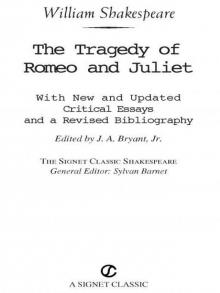 Romeo and Juliet
Romeo and Juliet As You Like It (Folger Shakespeare Library)
As You Like It (Folger Shakespeare Library)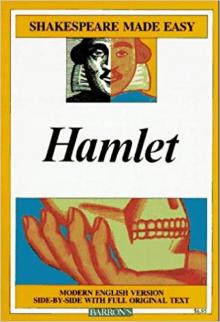 Hamlet
Hamlet Richard II (Folger Shakespeare Library)
Richard II (Folger Shakespeare Library) Macbeth
Macbeth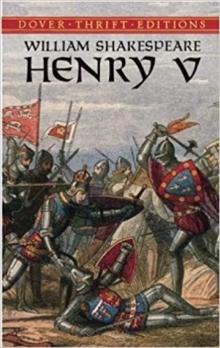 Henry V
Henry V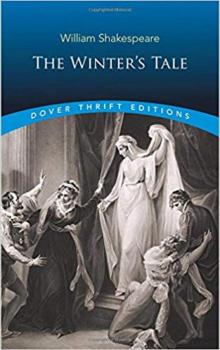 The Winter's Tale
The Winter's Tale The Taming of the Shrew
The Taming of the Shrew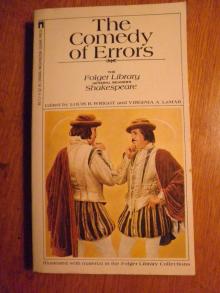 The Comedy of Errors
The Comedy of Errors King Lear (Folger Shakespeare Library)
King Lear (Folger Shakespeare Library)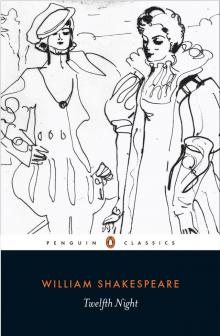 Twelfth Night
Twelfth Night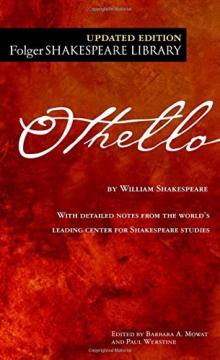 Othello
Othello The Two Gentlemen of Verona
The Two Gentlemen of Verona Henry IV, Part 1 (Folger Shakespeare Library)
Henry IV, Part 1 (Folger Shakespeare Library) King John/Henry VIII (Signet Classics)
King John/Henry VIII (Signet Classics)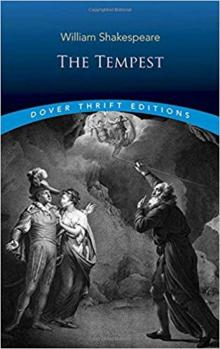 The Tempest
The Tempest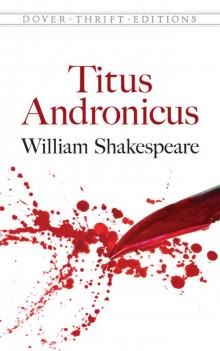 Titus Andronicus (Dover Publications)
Titus Andronicus (Dover Publications)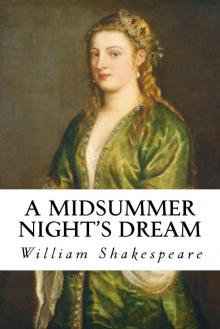 A Midsummer Night's Dream
A Midsummer Night's Dream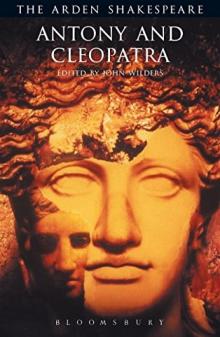 Antony and Cleopatra (Arden Shakespeare: Third Series)
Antony and Cleopatra (Arden Shakespeare: Third Series) The Oxford Shakespeare: Henry IV, Part 2 (Oxford World's Classics)
The Oxford Shakespeare: Henry IV, Part 2 (Oxford World's Classics)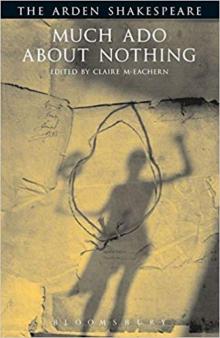 Much Ado About Nothing (Arden Shakespeare: Third Series)
Much Ado About Nothing (Arden Shakespeare: Third Series) All's Well That Ends Well
All's Well That Ends Well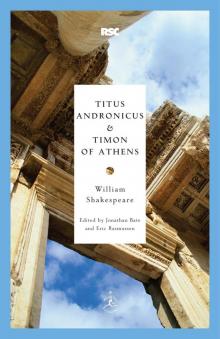 Titus Andronicus & Timon of Athens
Titus Andronicus & Timon of Athens Richard III (Modern Library Classics)
Richard III (Modern Library Classics) Coriolanus
Coriolanus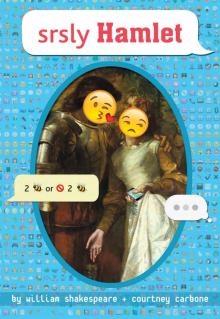 srsly Hamlet (OMG Shakespeare)
srsly Hamlet (OMG Shakespeare)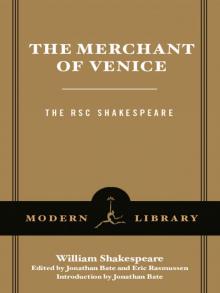 The Merchant of Venice
The Merchant of Venice Richard III
Richard III Richard II
Richard II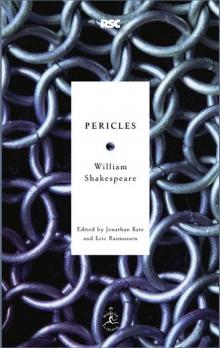 Pericles
Pericles As You Like It
As You Like It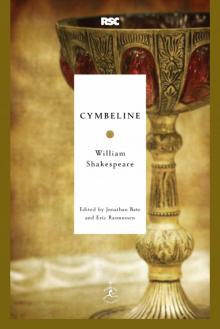 Cymbeline
Cymbeline Alls Wel that ends Well
Alls Wel that ends Well YOLO Juliet
YOLO Juliet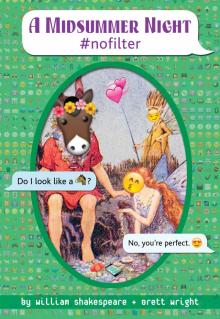 A Midsummer Night #nofilter
A Midsummer Night #nofilter Love's Labour's Lost
Love's Labour's Lost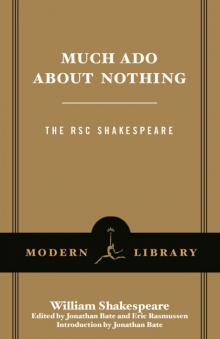 Much Ado About Nothing
Much Ado About Nothing Romeo & Juliet & Vampires
Romeo & Juliet & Vampires The Arden Shakespeare Complete Works
The Arden Shakespeare Complete Works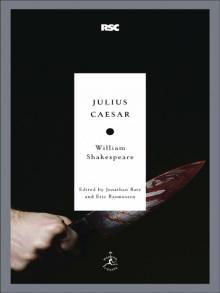 Julius Caesar
Julius Caesar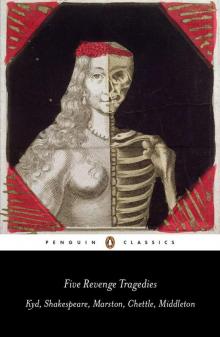 Five Revenge Tragedies: The Spanish Tragedy, Hamlet, Antonio's Revenge, The Tragedy of Hoffman, The Revenger's Tragedy (Penguin Classics)
Five Revenge Tragedies: The Spanish Tragedy, Hamlet, Antonio's Revenge, The Tragedy of Hoffman, The Revenger's Tragedy (Penguin Classics)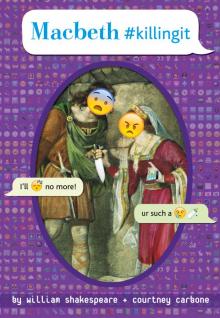 Macbeth #killingit
Macbeth #killingit The Oxford Shakespeare: The Complete Works
The Oxford Shakespeare: The Complete Works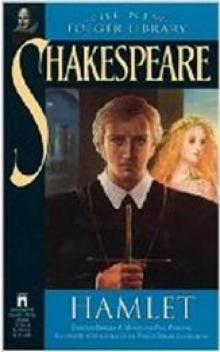 Hamlet, Prince of Denmark (Collins edition)
Hamlet, Prince of Denmark (Collins edition) King John & Henry VIII
King John & Henry VIII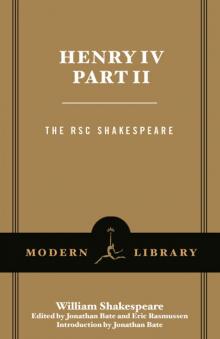 Henry IV, Part 2
Henry IV, Part 2 Complete Plays, The
Complete Plays, The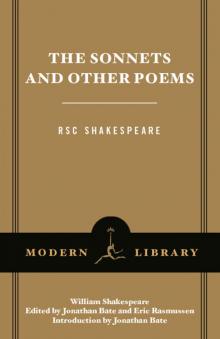 The Sonnets and Other Poems
The Sonnets and Other Poems Antony and Cleopatra
Antony and Cleopatra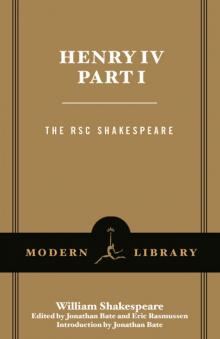 Henry IV, Part 1
Henry IV, Part 1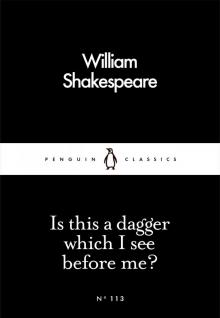 Is This a Dagger Which I See Before Me?
Is This a Dagger Which I See Before Me? The Complete Works of William Shakespeare In Plain and Simple English (Translated)
The Complete Works of William Shakespeare In Plain and Simple English (Translated) The Sonnets
The Sonnets